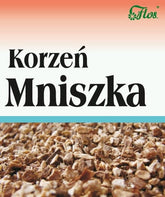Epsom salt – properties and uses
Contents
Epsom salt is an inorganic chemical compound called magnesium sulfate, or MgSO4. For many centuries, this salt has been valued for its health-promoting properties. It was discovered in the 17th century in natural springs near Epsom, England, where it initially evaporated. The salt's name comes from the town of Epsom, although it is also known as English salt or Epsom salt.
English salt is coarse—its crystals are large but dissolve well in water. Salt is white, odorless, and bitter in taste. The sulfur and magnesium content in Epsom salt makes it excellent for improving physical condition. It is primarily used in cosmetics and medicine. It is used in laboratories and industry. So let's find out what its properties are and how to use it correctly.
Properties of English salt
Both the sulfur and copper contained in Epsom salt have a positive effect on our bodies. Applied externally, or added to medicinal baths, Epsom salt has the following effects:
- Anti-acne,
- antiseborrheic, prevents excessive sebum secretion,
- antifungal,
- bactericidal,
- supportive in the treatment of arthritis and osteoarthritis,
- Relief of pain in muscles and joints,
- relaxing and relieves tension,
- calming for the nervous system,
- reduce the pressure,
- regenerating after training,
- Support the healing of bruises and contusions,
- pleasant feeling of heavy legs,
- Softening of hardened epidermis.
Epsom salt is recommended for fatigue and increased stress, as well as for rheumatic pain. Its effects don't end with the bath, but last for several hours. Applied to the scalp, Epsom salt has an anti-dandruff effect and strengthens hair. It also counteracts brittleness.
Epsom salt can also be taken orally, especially as an excellent remedy for constipation. It helps flush toxins and debris from the body. However, you should never exceed the daily salt intake recommended by the manufacturer and indicated on the packaging, as excessive consumption can lead to diarrhea, vomiting, and intestinal upset. Epsom salt is also not recommended for people with kidney disease.
Epsom salt – contraindications and possible side effects
Although Epsom salt is safe when used as directed, there are situations in which its use is discouraged. These include:
- the period of pregnancy and breastfeeding,
- low blood pressure,
- intestinal obstruction,
- Myasthenia gravis
- excess magnesium in the body.
The most common side effect is the laxative effect that can occur with excessive consumption of Epsom salt.
A bath in English salt brings many benefits to our body. It allows our body to relax and balance magnesium levels. In addition to its health-promoting effects on our muscles, bones, circulatory system, and nervous system, Epsom salt has a wonderful effect on our skin and the skin of our entire body, improving our external appearance.
THE PUBLISHER'S CHOICE
Dried plums 1 kg BIOGO
- €7,01
- €7,01
- Unit price
- / per
Dried White Mulberries 500 g ORGANIC
- €5,84
- €5,84
- Unit price
- / per
Almonds 1 kg BIOGO
- €11,69
- €11,69
- Unit price
- / per
Cranberries sweetened with apple juice organic 1 kg BIOGO
- €16,37
- €16,37
- Unit price
- / per
Dried dates 1 kg BIOGO
- €4,21
- €4,21
- Unit price
- / per
Unpeeled buckwheat groats 1 kg BIOGO
- €2,81
- €2,81
- Unit price
- / per
Walnuts 800 g BIOGO
- €8,65
- €8,65
- Unit price
- / per
Peeled sunflower seeds 1 kg BIOGO
- €3,04
- €3,04
- Unit price
- / per
PULLED ORGANIC SUNFLOWER SEEDS 1 KG BIOGO
- €4,44
- €4,44
- Unit price
- / per












































































































































